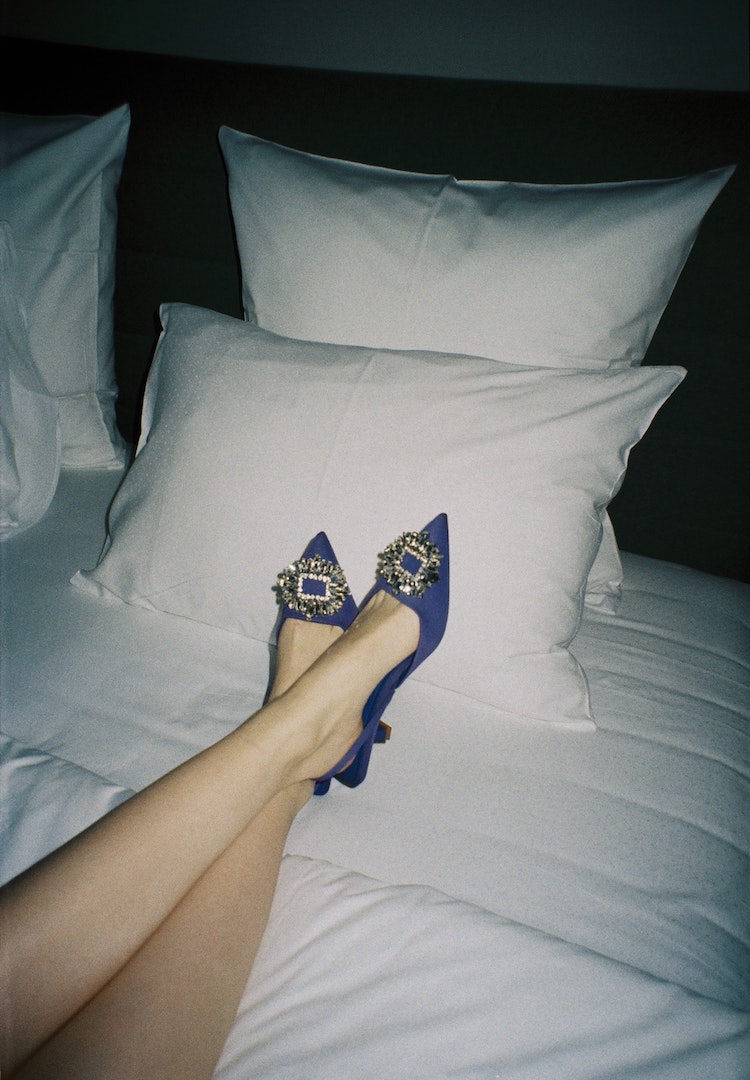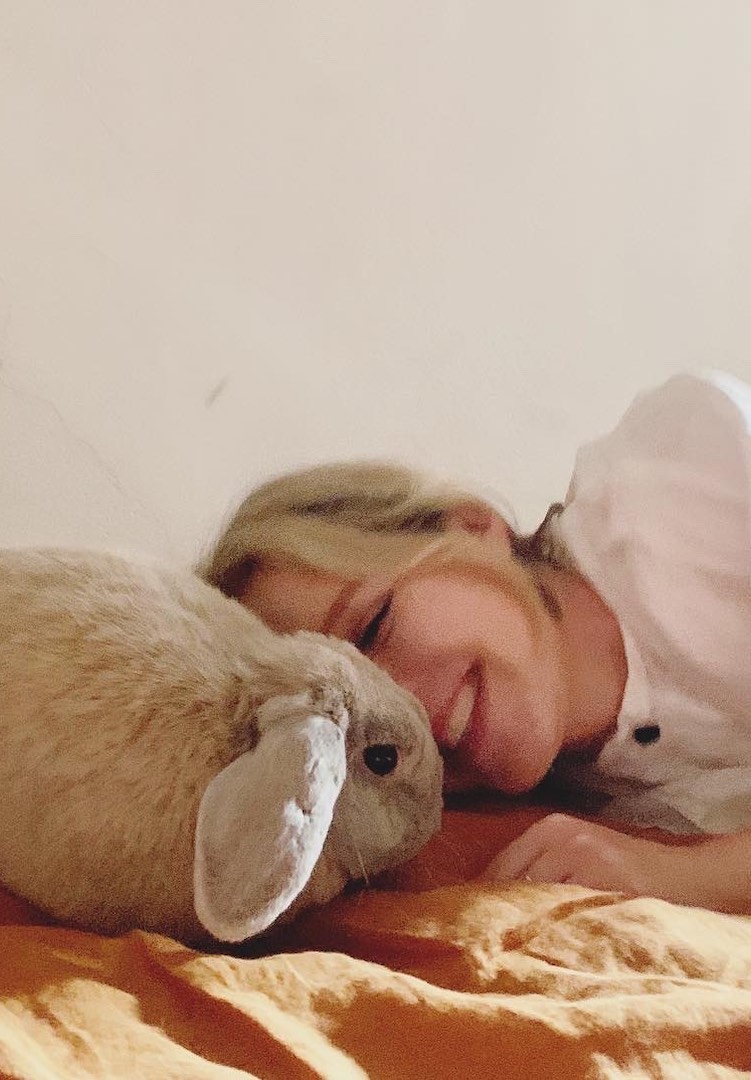What it’s really like living with OCD
WORDS BY TIARA SWAIN
“It’s like having a lawyer on steroids in our minds when we need a mediator.”
Obsessive-compulsive disorder (OCD) has shown up in my life ever since I was a teenager, particularly during times of struggle, change or uncertainty. Just when I think it’s no longer an issue, it rears its head by asking if I’ve locked the front door – over and over again.
These repetitive thoughts and checking activities can be very time-consuming and frustrating, to say the least. What many people don’t realise about OCD is that it’s much more than a fear of germs.
Interested to hear how others navigate the world? Head to our Life section.
One of my earliest memories of OCD is checking I hadn’t left any clothing in the communal washing machine. I remember sticking my head in the machine for a few minutes, convinced my eyes and brain were deceiving me. I’d finally walk away, only having to return to check again. Why was I so afraid of losing a sock? Couldn’t I see there wasn’t anything left behind?
What isn’t always understood about OCD is that it can manifest in many complex ways, and these repetitive behaviours are deeply rooted in fear. There are two types of symptoms associated with OCD. One is ‘obsessions’ which emerge as unwanted obsessive thoughts or images, like doubting whether I’ve turned the stove off.
The other is ‘compulsions’, repetitive behaviours or rituals that are difficult to resist and carried out to reduce this anxiety. For me, this involves checking multiple times whether I’ve, say, locked a door. And with statistics suggesting 3 per cent of Australians will experience OCD in their lifetime, you most likely know someone suffering from one of these behaviours, or in my case, both.
OCD loves order and predictability. Our brains think it will help regulate our nervous system so it creates these rules and rituals to keep us ‘safe’. For OCD sufferers, it’s about doubting and having difficulty tolerating uncertainty, so we make these checklists to ensure nothing bad will happen.
The strategic part of my brain goes offline when I’m stressed – no matter how much I reason with myself, I always succumb to irrational thoughts. I’m well aware these scenarios are unlikely to happen, but my mind is stuck in this destructive loop that finds ways to convince me otherwise. Every inch of my body feels the intensity of a vision as though it’s really happening, to the point where I sometimes cry.
While many people still think OCD only looks like someone who can’t stop washing their hands, it can manifest in these four ways: contamination and washing, doubt and checking, ordering and arranging, and unacceptable and taboo thoughts. I mostly fall into the doubt and checking category, though when I was younger, I recall being fearful of dirty seats. I had to constantly check before I sat down to ensure there weren’t any marks or stains.
I was also afraid of messy foods such as chocolate and avoided situations where I might’ve been exposed to them. I’m happy to say this particular OCD tendency has gone and I can finally enjoy a block of chocolate – but it goes to show how OCD can latch onto almost anything and change over time.
After seeing a therapist for the first time, it was news to me that my obsessive worrying was a form of OCD. I’d just assumed an anxious person like myself naturally thought of worst-case scenarios. But one common sign of OCD is repetitive thoughts or worries that aren’t rational.
The scenarios I play out in my mind are undoubtedly illogical but can cause me great distress. I fear my dog will run outside and get hit by a car if the front door is left open. I think that an intruder will enter the house if I forget to check the locks.
The anxiety is so strong I struggle to trust people to do anything for me, as I must completely control every situation. And for this reason, I’m constantly living in the past or future, struggling to enjoy the present moment and always mentally exhausted.
People are surprised when I tell them I suffer from anxiety and OCD, because I tend to function quite well in society, but these obsessive symptoms tend to come out when I’m alone. And for the most part, I’ve been someone with high-functioning anxiety. Many people with OCD hide their symptoms because of shame and embarrassment. It can be humiliating to explain why you checked the door knob several times or are afraid to touch people.
I’m so grateful for my supportive partner who constantly reassures me, even when I wake him up at night asking him if he locked the front door properly. Having people to talk to without judgement is necessary. Otherwise, it can feel quite isolating.
Seeing a therapist has been helpful in better understanding how my brain works. I’ve been working on rebalancing my nervous system, experimenting with neurofeedback, brainspotting and eye movement desensitisation and reprocessing, which are cognitive behavioural therapies that bypass conscious thinking to access unprocessed trauma.
When I ask for simple tips and tricks to beat OCD, I’m told there are no shortcuts. But by reducing anxiety, I’ll hopefully have fewer OCD episodes. My therapist tells me to have a conversation with these protective parts of my brain that are helping me manage high levels of anxiety and thank them for offering to help.
She says it’s like having a lawyer on steroids in our minds when we need a mediator. We can also try to become more flexible with our patterns by slowly resisting some of the urges, so over time, it’ll decrease the level of hold they have over us.
I’m still working on this. I bargain with myself that I’ll only jiggle the door knob a few times, then walk away and trust that it’s locked. I’m still challenged by the garden hose and making sure it’s definitely off. Still, I feel I’m slowly breaking free from these mental shackles.
When I notice my OCD creeping back in, I take it as a sign that I need to slow down and rest. It can be easy to get frustrated and angry, but it’s better to understand that it’s coming from a place of protection. We are living in a challenging time, it’s a normal reaction to be overwhelmed and stressed.
OCD does not define us. It’s part of anxiety, and that can eventually change. If anything, it’s about getting to know ourselves and learning how to work together with our internal systems by being as gentle and kind to ourselves as possible.
If you are struggling with obsessive-compulsive disorder and need information and support, anyone across Australia can contact the OCD and Anxiety Helpline on 1300 269 438.
To read more stories about women navigating OCD, head here.













